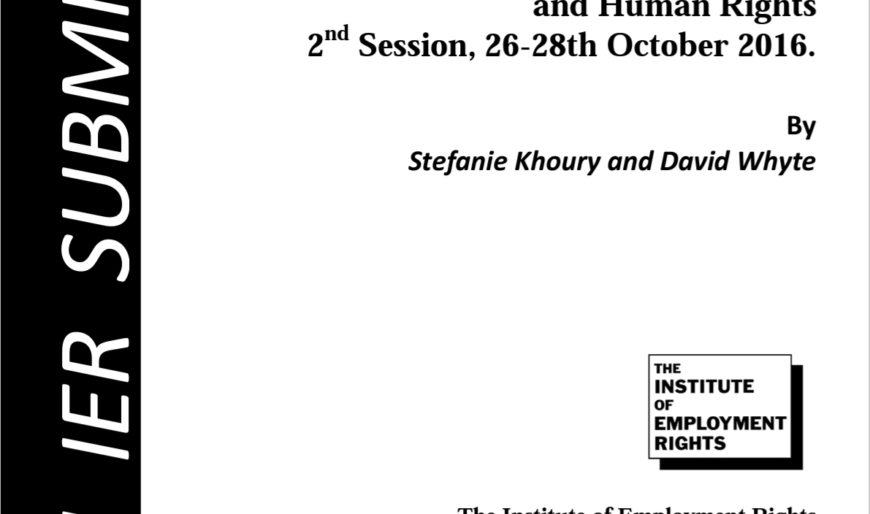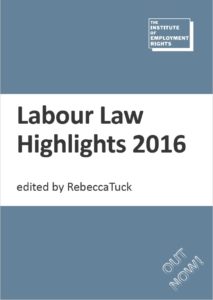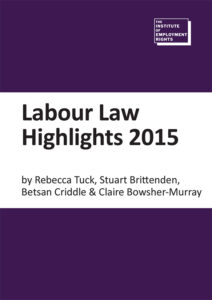Submission to the United Nations Open-ended Inter-Governmental Working Group on Transnational Corporations and Human Rights
The potential principles, scope and elements of an internationally binding instrument to protect human rights.

Stefanie Khoury and Professor David Whyte, both of the University of Liverpool, responded on behalf of the Institute of Employment Rights to a call for evidence by the United Nations Human Rights Council regarding the potential principles, scope and elements of an internationally binding instrument to protect human rights.
In this submission, the authors argue three key points when it comes to the way human rights legislation should approach multinationals and other enterprises.
Firstly, they state that human rights should not extend to ‘legal entities’ such as businesses and should be reserved instead for people.
Secondly, they argue that reaching a consensus with business on what legislation they find acceptable should not be prioritised above the regulation itself: “The regulation of TNCs [Transnational Corporations] should not require that corporations sign-off on the terms of their own regulation.”
And thirdly, the authors reaffirm that trade unions are a central factor in the prevention of human rights violations and should be approached as important bodies in the protection of workers’ rights.
“There is no more significant, positive effect upon the protection of workers’ human rights than the presence of active, democratic and independent representation,” they note.
Downloads
- IER-Corp-Human-Rights-2016-plus-cover.pdf - 626.44 KB








